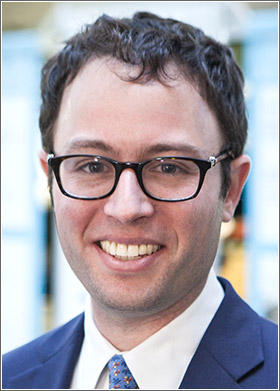News
Penn Research Cited in U.S. House Push to Reauthorize PCORI
Penn Medicine Researcher Mark Neuman's Work in the Spotlight
A U.S. House Ways and Means Committee hearing on reauthorizing funding for the Patient-Centered Outcomes Research Institute (PCORI) cited the University of Pennsylvania’s PCORI-funded REGAIN Trial project as a prime example of that Institute’s success and future value.
Reauthorization bill sponsor Rep. Donald Beyer Jr. (D-Va.) used the Penn project funded by a 2015 $11 million PCORI grant and led by Penn Medicine researcher and LDI Senior Fellow Mark Neuman, MD, MSc., to underscore how PCORI research pragmatically relates to patient care now. PCORI has funded 750 different studies since it was created by the Affordable Care Act nine years ago. Beyer cited Penn’s REGAIN study and two others as examples of PCORI’s achievement.
A five-year project that is three-quarters completed, the Penn REGAIN study involves 45 sites and 1,600 patients across the country. It is the largest randomized controlled trial ever done comparing the post-surgical effects of spinal vs. general anesthesia. Congressman Beyer pointed out the wide potential relevance of the work to millions of patients.

‘More effective decisions’
“When looking at how to improve the health care system, this is the kind of research we want to support,” he told the hearing room. “How do we make the patient experience better? How do we help physicians and clinicians make more effective decisions? That’s the role of PCORI.”
“Patients and caregivers face complex and confusing choices,” Beyer continued. “PCORI’s whole research goal is not fundamental research like NIH or drug research like FDA. It’s there to fill gaps in evidence for the physicians actually serving patients each and every day.”
At the end of the day-long Capitol Hill meeting, Committee members voted to approve the Protecting Access to Information for Effective and Necessary Treatment (PATIENT) Act that extends PCORI funding to 2026.
REGAIN network
“One of the reasons this was all so exciting is what it says about the network we’ve been able to build through REGAIN,” said Neuman, Director of Penn Medicine’s Center for Perioperative Outcomes Research and Transformation (CPORT). “The way Congressman Beyer learned about our study was through conversations with the orthopedics research team at INOVA-Fairfax Hospital in Falls Church, Virginia, which is a major recruiting site for REGAIN. It’s a great example of the kind of engagement and impact that can happen through collaborative efforts like REGAIN.”
“I’ve personally seen the negative side effects,” Beyer said, “When both my father and father-in-law got new knees, you saw really significant impact on their cognitive behavior after having received a general anesthesia. Their knees got well a whole lot faster than their brains did.”
Neuman is the overall Principal Investigator for the REGAIN Trial; other LDI Senior Fellows involved in REGAIN include Lee Fleisher, MD, Chair of Anesthesiology and Critical Care at Penn’s Perelman School of Medicine and and J. Sanford Schwartz, MD, Professor of Internal Medicine at Perelman and former LDI Executive Director.